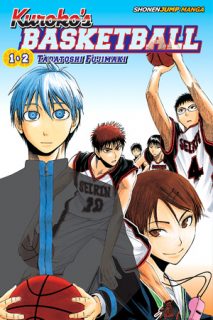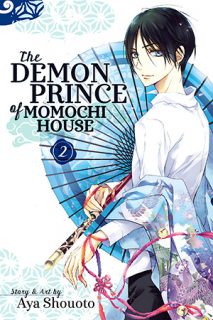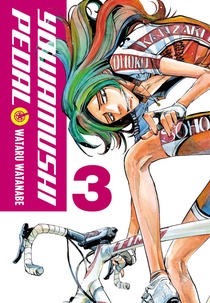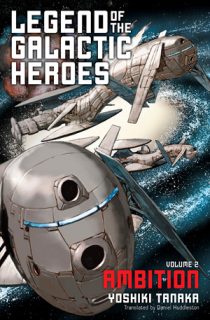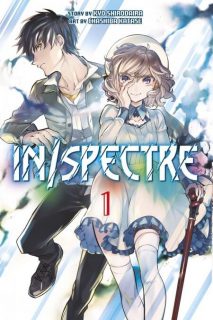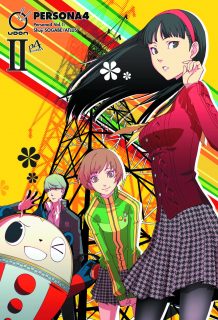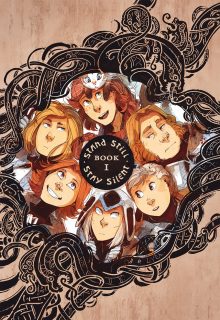The end of 2016 has come and, as promised, I have compiled my annual list of notable releases of some of the works published within the last twelve months. All of the caveats from previous years still apply–to qualify a book must have been released in 2016 and I must have read it in 2016. (And I certainly haven’t read everything that’s been published this year.) Additionally, this year I’ve specifically decided to focus on debuts rather than continuing series (with one exception) and am limiting the list to one book per publisher in order to make it more manageable for myself. This is not a “best of” list or a list of favorites (that would be a much longer feature). It’s not even a list of all of the noteworthy releases from the past year, otherwise I’d probably never finish writing (2016 was an excellent year for manga in particular). What this list is is a subset of releases from the last year that, for one reason or another, left the most significant impressions on me.
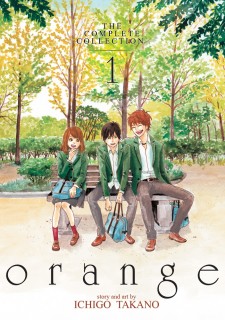 The first manga published in English in 2016 which really made me take note was Ichigo Takano’s Orange. It’s a heartwarming but bittersweet story which deals with some very heavy topics including crippling guilt, regret, depression, and suicide. Orange resonated very strongly with my own personal experiences as someone who is both challenged by and knows others who struggle with similar issues. The manga can be heartbreaking, but Takano’s approach is immensely compassionate and life-affirming.
The first manga published in English in 2016 which really made me take note was Ichigo Takano’s Orange. It’s a heartwarming but bittersweet story which deals with some very heavy topics including crippling guilt, regret, depression, and suicide. Orange resonated very strongly with my own personal experiences as someone who is both challenged by and knows others who struggle with similar issues. The manga can be heartbreaking, but Takano’s approach is immensely compassionate and life-affirming.
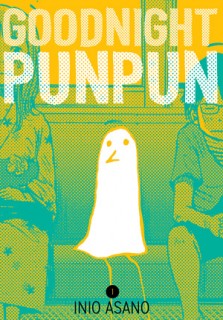 Inio Asano’s Goodnight Punpun is likewise a heartwrenching manga that deals with very serious and troubling subject matter. However, in the case of Goodnight Punpun, that exploration ends up being incredibly dark and surreal. I find the series to be remarkably compelling and the artwork is spectacular, but it’s certainly not what I would call light reading. The tragic coming-of-age story that Asano presents is deliberately uncomfortable and even the humor tends to be extremely bleak.
Inio Asano’s Goodnight Punpun is likewise a heartwrenching manga that deals with very serious and troubling subject matter. However, in the case of Goodnight Punpun, that exploration ends up being incredibly dark and surreal. I find the series to be remarkably compelling and the artwork is spectacular, but it’s certainly not what I would call light reading. The tragic coming-of-age story that Asano presents is deliberately uncomfortable and even the humor tends to be extremely bleak.
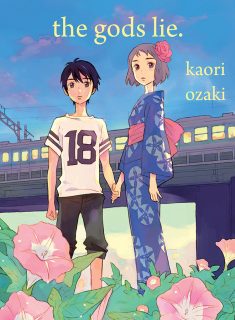 Devastating coming-of-age stories were apparently a theme for me in 2016 because The Gods Lie by Kaori Ozaki fits into that category as well. The Gods Lie was actually one of my most anticipated releases of the year and I was not disappointed. The manga is a beautiful, emotionally resonate work with a story that is both skillfully told and drawn. Ozaki addresses themes of abandonment, desperation, and death, recognizing that solutions to bad situations aren’t always easy or clear.
Devastating coming-of-age stories were apparently a theme for me in 2016 because The Gods Lie by Kaori Ozaki fits into that category as well. The Gods Lie was actually one of my most anticipated releases of the year and I was not disappointed. The manga is a beautiful, emotionally resonate work with a story that is both skillfully told and drawn. Ozaki addresses themes of abandonment, desperation, and death, recognizing that solutions to bad situations aren’t always easy or clear.
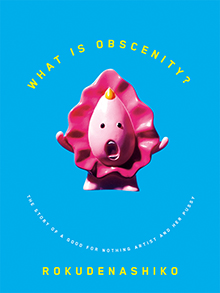 Although the subject matter of Rokudenashiko’s autobiographical manga What Is Obscenity?: The Story of a Good for Nothing Artist and Her Pussy is also quite serious—a portrayal of the circumstances surrounding her multiple arrests on obscenity charges—the volume itself is charmingly funny, sweet, and surprisingly upbeat. Rokudenashiko’s work as an artist and activist is both inspiring and empowering. I personally feel that What Is Obscenity? was one of the most important releases from 2016.
Although the subject matter of Rokudenashiko’s autobiographical manga What Is Obscenity?: The Story of a Good for Nothing Artist and Her Pussy is also quite serious—a portrayal of the circumstances surrounding her multiple arrests on obscenity charges—the volume itself is charmingly funny, sweet, and surprisingly upbeat. Rokudenashiko’s work as an artist and activist is both inspiring and empowering. I personally feel that What Is Obscenity? was one of the most important releases from 2016.
 A few years ago, Drawn & Quarterly released a collection of Shigeru Mizuki’s Kitaro manga which I loved, so I was thrilled when a multi-volume Kitaro series was announced. Beginning with The Birth of Kitaro, the series has been specifically curated to appeal to younger readers although the manga is still a tremendous amount of fun regardless of age. Not very many classic manga are licensed in English these days, but with my particular interest in yokai, I’m glad that the influential Kitaro is one of them.
A few years ago, Drawn & Quarterly released a collection of Shigeru Mizuki’s Kitaro manga which I loved, so I was thrilled when a multi-volume Kitaro series was announced. Beginning with The Birth of Kitaro, the series has been specifically curated to appeal to younger readers although the manga is still a tremendous amount of fun regardless of age. Not very many classic manga are licensed in English these days, but with my particular interest in yokai, I’m glad that the influential Kitaro is one of them.
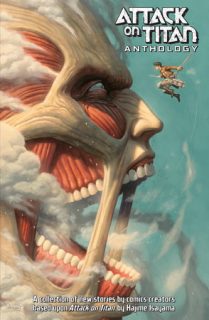 Kodansha Comics was the manga publisher that impressed me most overall in 2016 with the expansion of the range of its offerings. One of the most interesting releases actually wasn’t a manga but an original collection of Western comics inspired by Hajime Isayama’s Attack on Titan. Like any anthology, some of the contributions to Attack on Titan Anthology are stronger than others, but some are incredible. As a whole, the volume is a fantastic collection compiling a wide variety of styles and genres.
Kodansha Comics was the manga publisher that impressed me most overall in 2016 with the expansion of the range of its offerings. One of the most interesting releases actually wasn’t a manga but an original collection of Western comics inspired by Hajime Isayama’s Attack on Titan. Like any anthology, some of the contributions to Attack on Titan Anthology are stronger than others, but some are incredible. As a whole, the volume is a fantastic collection compiling a wide variety of styles and genres.
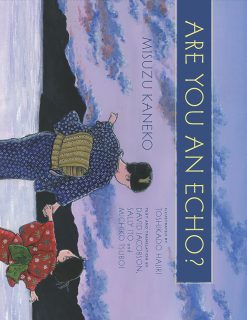 Another remarkable multinational effort from 2016 was Are You an Echo?: The Lost Poetry of Misuzu Kaneko from Chin Music Press. The children’s book, beautifully illustrated by Toshikado Hajiri, combines a biography written by David Jacobson with a selection of Kaneko’s poetry translated by Sally Ito and Michiko Tsuboi. Kaneko is relatively unknown in English but her work is utterly delightful, charming, and compassionate. Are You an Echo? is a lovely book and a treasure.
Another remarkable multinational effort from 2016 was Are You an Echo?: The Lost Poetry of Misuzu Kaneko from Chin Music Press. The children’s book, beautifully illustrated by Toshikado Hajiri, combines a biography written by David Jacobson with a selection of Kaneko’s poetry translated by Sally Ito and Michiko Tsuboi. Kaneko is relatively unknown in English but her work is utterly delightful, charming, and compassionate. Are You an Echo? is a lovely book and a treasure.
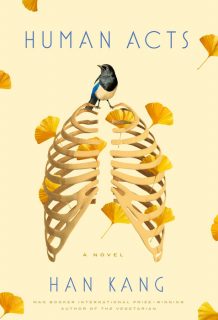 Technically, Han Kang’s Human Acts won’t be released in North America until 2017, but the English translation was first published in 2016. The novel was honestly one of the best books that I read all year. It was also one of the most devastating and haunting. Beautifully written by Kang and elegantly translated by Deborah Smith, Human Acts shows how past tragedies have long-lasting and far-reaching effects on the present and future. The novel is intensely personal, political, and powerful.
Technically, Han Kang’s Human Acts won’t be released in North America until 2017, but the English translation was first published in 2016. The novel was honestly one of the best books that I read all year. It was also one of the most devastating and haunting. Beautifully written by Kang and elegantly translated by Deborah Smith, Human Acts shows how past tragedies have long-lasting and far-reaching effects on the present and future. The novel is intensely personal, political, and powerful.
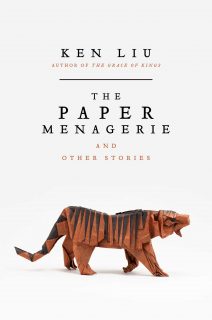 The Paper Menagerie and Other Stories is the second book by Ken Liu to have been published. (Liu’s first book, The Grace of Kings, was actually on last year’s list of notable releases.) The collection brings together fifteen of Liu’s short stories and novellas, a combination of award-winning works and the author’s personal favorites. The volume is consistently compelling and thought-provoking—as good speculative fiction should be—each story providing a distinctive and meaningful perspective.
The Paper Menagerie and Other Stories is the second book by Ken Liu to have been published. (Liu’s first book, The Grace of Kings, was actually on last year’s list of notable releases.) The collection brings together fifteen of Liu’s short stories and novellas, a combination of award-winning works and the author’s personal favorites. The volume is consistently compelling and thought-provoking—as good speculative fiction should be—each story providing a distinctive and meaningful perspective.
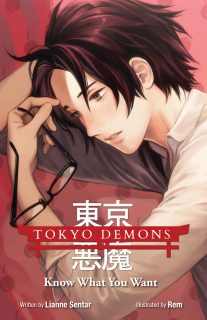 As many people know, Lianne Sentar’s Tokyo Demons is one of my obsessions, so I would be remiss to not mention it here. 2016 was a great year for fans of the series: Know What You Want, a provocative collection of mature side stories, was released in print, the third book finished its serialization online with an extremely satisfying conclusion, and the beginnings of the sequel series Tokyo Ghosts began to make its appearance. I’m very glad for the opportunity to see the story and characters continue to change and evolve.
As many people know, Lianne Sentar’s Tokyo Demons is one of my obsessions, so I would be remiss to not mention it here. 2016 was a great year for fans of the series: Know What You Want, a provocative collection of mature side stories, was released in print, the third book finished its serialization online with an extremely satisfying conclusion, and the beginnings of the sequel series Tokyo Ghosts began to make its appearance. I’m very glad for the opportunity to see the story and characters continue to change and evolve.

